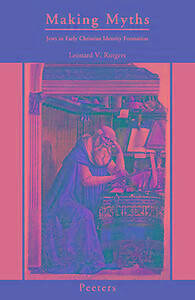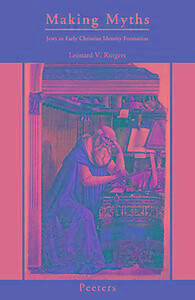
- Afhalen na 1 uur in een winkel met voorraad
- Gratis thuislevering in België vanaf € 30
- Ruim aanbod met 7 miljoen producten
- Afhalen na 1 uur in een winkel met voorraad
- Gratis thuislevering in België vanaf € 30
- Ruim aanbod met 7 miljoen producten
Zoeken
€ 31,00
+ 62 punten
Omschrijving
Were the Jews who appear so abundantly in the writings of the early Church real or were they figments of the imagination? In this new book, Leonard Rutgers argues that they were both. Exploring Jewish-Christian interaction in Late Antiquity in the form of three case studies, Rutgers shows that early Christian ideas about Jews and Judaism not only played a determining role in the ideologies that shaped early Christian identity formation. They also had a tendency to spill over into the real world. Therefore such ideas deeply influenced the dynamics of Jewish-Christian relations during a period that saw the curtailing of Jewish civil rights and liberties precisely as a result of early Christian exegetical activity. Making Myths draws a picture of Jewish-Christian relations in Late Antiquity that is significantly bleaker than the optimistic view of Roman-period Jewish history that permeates many recent studies on the topic. An epilogue sets out to explain why more irenic scenarios do not apply to the period under study.
Specificaties
Betrokkenen
- Auteur(s):
- Uitgeverij:
Inhoud
- Aantal bladzijden:
- 151
- Taal:
- Engels
Eigenschappen
- Productcode (EAN):
- 9789042922402
- Verschijningsdatum:
- 24/03/2010
- Uitvoering:
- Paperback
- Formaat:
- Trade paperback (VS)
- Afmetingen:
- 160 mm x 216 mm
- Gewicht:
- 208 g

Alleen bij Standaard Boekhandel
+ 62 punten op je klantenkaart van Standaard Boekhandel
Beoordelingen
We publiceren alleen reviews die voldoen aan de voorwaarden voor reviews. Bekijk onze voorwaarden voor reviews.











